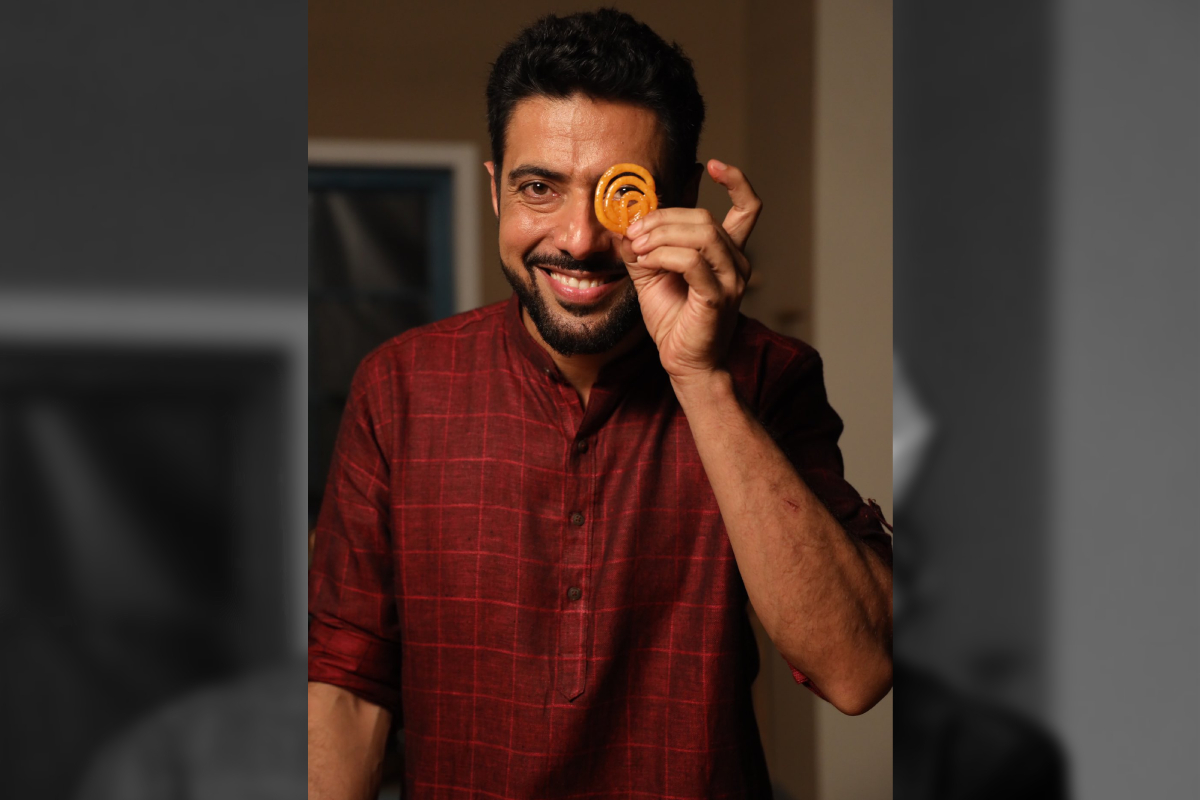
Ranveer Brar is one of the most renowned chefs of India and has been a host of many popular cookery shows. Known for his ingenuity and finesse, Brar excels in giving a contemporary edge to traditional cuisines. Along with being a judge of the season 4 and 6 of MasterChef India, he has also authored books such as ‘Come Into My Kitchen’ and ‘A Traditional Twist’.

Ranveer Brar is one of the most renowned chefs of India and has been a host of many popular cookery shows. Known for his ingenuity and finesse, Brar excels in giving a contemporary edge to traditional cuisines. Along with being a judge of the season 4 and 6 of MasterChef India, he has also authored books such as ‘Come Into My Kitchen’ and ‘A Traditional Twist’.
In an exclusive interview with The New Indian, the celebrated chef comes clean on a range of subjects –
What according to you is the most valuable asset/possession of a chef?
For me, a tangible asset that I am quite protective of are my knives. I have a full gamut of them which I have collected over the years. As for an intangible one, I’d say skills and knowledge we acquire over the years – some on the job, some when we travel. But most importantly, the people whom we ‘touch’ through our food and cooking are the biggest assets any chef can have.
How do you describe your overall cooking philosophy?
My cooking philosophy is to pour into dishes what I experience during my travel. Also, I like want my cuisines to spark off interesting and insightful conversations. The objective is to touch a chord with people in a manner that reminds them of same/ similar dish they might have experienced elsewhere. I am also driven by the principles of eat seasonal and local. Basically, when we consume what’s natural to our DNA, sustainability automatically kicks in.
When did you decide to become a chef? What/who inspired you to take up this profession?
When I was in my pre-teens, my mother took ill and I decided to make Rajma for all of us. I had no recipe but had observed when mother was cooking. It turned out good enough for father to secretly tell mom that he loved it! That sort of clinched the deal for me. I have been inspired by many people in my life and continue to be. Right from my biji, Munir Ustad, the street food vendors of Lucknow, chef Charlie Trotter, to name a few.
Tell us about the formal training you received for turning chef.
After a 6-month stint with Munir Ustad, a local kebab vendor, I enrolled in IHM, Lucknow for formal training. Following that, I joined the Taj group of hotels and life just took off from there.
Which food and beverage trends do you follow?
Having grown up in a farm, eating seasonal and local is what I prefer to follow as a rule. For me, sub-regional, hyper-local cuisines take precedence. Above all, I feel these subjects must become a part of mainstream conversations and bring about substantive change, rather than just being trends that come and go.
Conversations about the provenance, the origin of ingredients and dishes that help build a relationship with the cuisine, more than just the recipe itself, are important.
Has social media been helpful for you to expand your domain?
Digital media allows me to connect with a wider audience beyond geographical barriers. During the lockdown, when we all were in need of motivation and positivity, social media proved a handy platform for me to keep people engaged in positive conversations and encourage them to cook more. After all, what can spread more positivity than good food, especially in our country?
How do you address food waste in the hospitality industry? How can food waste be reduced?
Food waste and food loss both need to be addressed together. The loss of food, even before it reaches the supermarket or end consumer, is a huge concern. Food waste in the hospitality industry can be reduced from following measures: a) awareness – both within the industry and with the consumer; b) Building a model of sustainability within the food production SOPs and having a very clear recycling/upcycling philosophy.
This is something I noticed during my recent trip to Finland as well, where recycling spoilt food doesn’t necessarily mean reusing as consumables, but converting it into compost for instance and thereby constructively bringing it back into the food ecosystem.
What’s your signature dish? What makes it so special/different from your other dishes?
I don’t have a signature dish as that would be limiting myself. But I have always been fascinated with recreating the ‘Dorra Kebab’, due to the finesse and technique that go into making it.
What would be your advice to the aspiring chefs?
I would like to tell them to stick to their roots and basics. Also, identify their food philosophy, believe in it and look for ways to manifest that in their cuisines.
ALSO READ: Anu Malik: Proud To Be Arya Samaji, Krishna Bhakt; Want To Work With PM On Policies